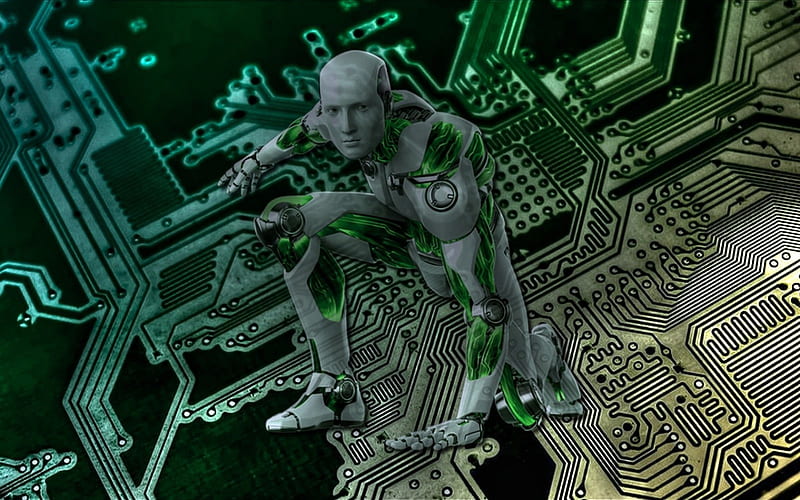Only thought says what things are! Nothing else does, nothing else is interested in doing so. This is a good thing to remember because it shows us that we live in a world that is made up of thought’s definitions. We live almost exclusively in ‘the world of form and name’, and all of this is thought’s doing. To remember ‘that only thought says what things are’ is to uncover a very great mystery therefore – if the only world that we know is the world that thought has created for us, then what lies beyond this artificial façade?
We could come at this mystery from another angle too – if the only self we know is this identity that has been created for us by thought, then who are we really? This is of course the mystery that is pointed to by the inscription over the entrance to the Temple of Apollo in Delphi – Know thyself (or gnothi seauton). This edict isn’t encouraging us to identify ourselves, classify ourselves, think about who we are or ‘say who we are’, it is encouraging us to look beyond who we always say (or think) we are. From one point of view, it is inconceivable that we would not be interested in doing this – how could we possibly not be interested in this mystery? And yet we are not; incredibly, we are interested in anything but this!
So what’s going on here? What could cost possibly account for such a bizarre situation, the situation in which we hold onto the identity which thought provides us with, which is necessarily ‘two-dimensional’ or ‘cartoon-like’ (since what thought says we are is essentially a label with nothing behind it) and have no curiosity at all (not even a little bit!) about our true nature, which is both authentically ours, and ‘deep’ (rather than being shallow, superficial or ‘label like’)? What on earth is possessing us? What advantage could there possibly be in this setup? It looks very much like pure disadvantage with no redeeming features.
Asking these questions actually gives us a possible explanation, of sorts. One reason for the strange situation that we talking about here – which is the situation that we are all in, whether we like to admit it or not – could be that we are indeed possessed (highly averse though we are these days to such talk), only more in the sense of what Jung means when he talks about being ‘possessed by the persona’. ‘Possession’, says Jung,‘can be formulated as identity of the ego-personality with a complex’. Jung goes on to say (Collected Works Vol. 9 (1) (p 122-3)) that:
A common instance of this is identity with the persona, which is the individual’s system of adaptation to, or the manner he assumes in dealing with, the world.
The ‘persona’ may be defined as a system of adaptation to society’ as Jung does, or it may – equally well – be defined as being ‘who society says we are’. It comes to the same thing either way, obviously. The term possession’ indicates that what we are being possessed by has a life of its own; more than this, it indicates that what we are being possessed by has a life of its own and that it is taking over our life. To quote Paul Levy:
Jung says, “The devil is the aping shadow of God.” When we are possessed by the unconscious, a more powerful, archetypal energy shape-shifts and takes on our seeming form, which we absorb into, identify with and believe to be who we are. Bamboozled and hoodwinked by the slick “salesmanship” of this imposter of ourselves, we “buy” into its version of who we are. We then live a simulation of ourselves, miming ourselves, becoming a master copy, a duplicate of our original selves. To the extent we are unconsciously possessed by the daemon, it is as if a psychic parasite has taken over our brain and tricked us, its host, into thinking we are feeding and empowering ourselves while we are actually nourishing the parasite. It is as if our soul has become hijacked by a deeper, archetypal force, and has been replaced with a pale imitation of ourselves, and, to the extent we are taken over, we don’t even realize it.
Our instant, knee-jerk reaction to the idea of psychic possession might be to dismiss it instantly, but when we look into it the notion doesn’t seem quite so unlikely after all. If I really and truly believe myself to be this persona, this system of adaptation to society, then why wouldn’t it have ‘a life of its own’? I am actually giving it my life; if I am living my life as if I am this persona (and refusing to acknowledge or take any interest whatsoever in any other type of life) then the persona in question really and truly does have a life. It may not be what we would call an ‘authentic life’, but this doesn’t make any difference to the consciousness that is trapped in the persona; this persona, this ego, this conditioned identity, is a game that is being played, but the consciousness that is trapped within the game doesn’t realise this. In practical terms, ‘the game has become true’.
When we asked what benefit or advantage there might be in this situation, the situation we are where we are profoundly disinterested in finding out anything about our true nature, and are content with the ‘label-like’ identity that the thinking mind provides us with, this might seem that the question with no answer, but actually there is a rather obvious answer. The advantage belongs to the possessing entity, needless to say – were we to take any interest in what our true nature might be this would effectively be a death sentence to ‘who we think we are’. Taking an interest in the bigger world that lies all around us involves a sacrifice – it involves the sacrifice of the mind-created identity. Sarah Davidson quotes Ram Dass as saying:
We all have rooms in our head we keep closed and guarded, as part of our social posture. That guiding is energy, and it makes things real. Freedom lies in realising that everything you are protecting isn’t who you really are.
Another way of putting this is to say that we make things real by assuming that they are! If I am assuming that something is true then I am putting a lot of energy into guarding against finding out that they aren’t (obviously enough). When I assume that this conditioned identity is who I am then I am constantly putting energy into this task, even though I don’t know it. Giving energy to this construct without knowing it is ‘making it real’ – it is making it ‘virtually real’, at least, and ‘virtually real’ is enough to trap me. The conditioned sense of self that we are talking about here is just like a freshly hatched cuckoo chick therefore – we think that it’s who we are and so we are lavishing attention on it, we are constantly protecting and nurturing it and monitoring it to make sure that it’s getting on okay. We’re protecting the conditioned sense of self against any harm, any insult, and the biggest harm of all (the biggest insult) is the realisation that this SOS isn’t who we are, and – furthermore – that it is nothing more than a mind-created fiction. When it comes down to it, this is the eventuality that we are always guarding against; this is the eventuality that we can never mention by name, and which we can never allow ourselves to give any attention to (because that would be far too frightening) but which we are nevertheless always engaged in.
This gives us a totally back-to-front way of viewing human existence: instead of seeing ourselves as being involved in essentially ‘heroic’ acts (so to speak) – acts in which we strive to obtain ‘worthwhile external values’ – we are presented with the not very agreeable picture of ourselves struggling the whole time to prevent ourselves from seeing the truth, which is not – naturally enough – a particularly heroic way of carrying on! I like to see myself as striving to realise my goals because that goal represents an important and significant external value (i.e. it represents something that is ‘above-board’, so to speak, something that is ‘important for the reasons that I say it is’) whilst really that is merely a cover story because the goal is actually only important to me because it’s a way of distracting myself. This might be a rather unfamiliar way of viewing regular, everyday human existence, but if that is so it is only because we live in such a profoundly ‘un-psychologically minded’ society. We are all about our goals, they are the ‘be all and end all’ as far as we’re concerned and so we certainly aren’t in any hurry to entertain the suggestion that the only reason we put as much value on them as we do is because they are distractions for us, because they enable us to carry on distracting ourselves from becoming aware of our true nature, which is so much greater than the squalid (or ‘shoddy’, as Krishnamurti says) existence that we have colluded in creating for ourselves.We can only continue to live the petty lives that we do live when we don’t see that they are so petty, after all – awareness is a very dangerous thing and we don’t want to have anything to do with it!
Our lives (as Chogyam Trungpa says somewhere) are exercises in self-distraction. We have a choice between the various styles of distraction that we have available to us, but no choice about the fact that we have to distract ourselves.We’re free to hide anyway we want but we’re not free ‘not to hide’… We keep ourselves busy with our games so that we don’t ever have to look at the truth – that’s what games are good for, after all! That’s the beauty of playing games. The activity of playing games is our secret weapon when it comes to avoiding seeing the bigger picture and ‘avoiding seeing the bigger picture’ is most definitely what we want to do! What all this comes down to is fear, as we have already said – we are living under ‘the rule of fear’ and this situation necessarily involves not being aware that we are. To be aware that we are living under the rule of fear would be a very brave thing and doing very brave stuff isn’t (needless to say) compatible with living under the rule of fear! Under this regime, this back-to-front modality of being, to successfully hide from the truth becomes the greatest value of all, but – as we keep saying – instead of admitting this ‘we spin it around’ and say that we are ‘heroically striving to obtain worthwhile external values’. We feel that we deserve a medal for successfully hiding out from reality, in other words…
This is what it means to be ‘living life on the basis of fear’, and it is also what it means to be ‘living life on the basis of thought’. The two come down to exactly the same thing. We might wonder why this should be so but actually the answer is simple – thought works on the principle of specifying, on the basis of ‘saying what things are’. We could also say that thought works by ‘pointing at stuff’. Thought performs this operation, this function, by ignoring the bigger portion of reality and then ignoring the fact that it is ignoring it. Thought works on the Principle of Exclusion, in other words; it works by ‘turning a blind eye to the bigger picture,’ by pretending that the bigger picture isn’t there. This is after all the only way that anything can ever be specified; it is the only way that definite statements can be made – by ‘ignoring the bigger context’, which would if taken notice of necessarily relativize our definite statements and make them not be definite anymore! It is therefore perfectly fine for thought to work in this way – as we have said this is the only way in which thought can work – but when it stops being fine is when we live life exclusively on the basis of thought, as if there were nothing else but thought, as if thought were the final (and only) authority.
According to thought itself this is of course indeed the case; according to thought itself, it really is the final authority – no question about it! Can we believe it, though? Is thought to be trusted when it tells us that it provides us with the one and only true way of seeing the world? The essential question here is this – what is the true role of thought (when it is let loose on the world), is it the role of ‘the saviour’, or that of the devil (who is ‘the aping shadow of God’, as Jung and the medieval theologists said)?






